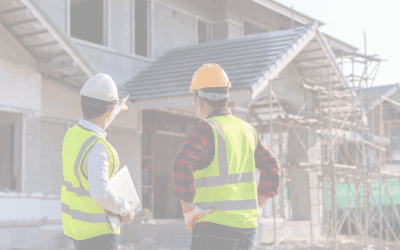With new homes and infrastructure at the heart of the Government’s plan to drive economic growth, construction is firmly in the spotlight, and we need to ensure the industry is delivering high quality buildings that are safe to occupy and perform as expected. There is significant focus on the new building safety regime, which has strengthened existing legislation and introduced a raft of new requirements, and it can feel quite overwhelming as more information is published while everyone is getting up to speed.
Build UK, of which FIS is a member, is regularly meeting with the Building Safety Regulator (BSR) as well as the Ministry of Housing, Communities and Local Government (MHCLG), enabling them to respond to issues quickly and effectively.
There is still a long way to go, particularly with further changes likely as a result of the final report from the Grenfell Tower Inquiry, and through our links with Build UK we will continue to work closely with the BSR and MHCLG to ensure the new regime is implemented as effectively as possible. The prize is a more organised and productive industry, with earlier engagement of the contracting supply chain and more advanced design before construction work begins, and it is clear from the improved success rate at Planning Gateway One that the industry is adapting and fire safety measures have been integrated into the design process.
We understand that Gateway Two is proving to be a real challenge, and Build UK is developing guidance to support members through the process and have published a guide to Mandatory Occurrence Reporting, which includes a template MOR system for use during the construction of Higher‐Risk Buildings (HRBs) to help ensure a consistent approach across the supply chain. This guide is for Build UK members (which includes FIS members).
This guidance summarises the requirement under the Building Safety Act to notify and report certain types of building safety incidents and risks in HRBs to the BSR. Mandatory Occurrences are incidents and risks during the construction and occupation phases of an HRB that have caused, or if not remedied are likely to cause, the death or serious injury of a significant number of people and involve structural failure and/or the spread of fire or smoke in the building.
The BSR has provided additional information on why applications are being rejected. Applications must clearly demonstrate how the design and construction of the building complies with Building Regulations by identifying every single element that needs to demonstrate compliance, clarifying how compliance will be demonstrated using the appropriate standard or code, and justifying how compliance has been achieved with a narrative. Further details can be found on the BSR microsite and the BSR recommends that professional advice is taken before submitting an application.
There is also a new FAQ explaining the difference between Category A work, which involves significant alternations to the structure, safety or design of an HRB, and Category B work, which is much simpler in scope and includes all work that does not fall under Category A. Both categories of work are required to go through the Gateways with the BSR as the Building Control Body. Work carried out under a Competent Person Scheme and work that is exempt as defined in schedule 2 or emergency repairs as specified in Regulation 10 of The Building (Higher‐Risk Buildings Procedures) (England) Regulations 2023 do not fall under Category A or Category B.
Take our Building Safety Act Training Course
FIS created an online training course to help members understand compliance with the Building Safety Act, specifically for those in the finishes and interiors sector.
See more news likes this
Reforms to Building Safety Regulator to accelerate housebuilding
Delays to building new high-rise homes will be unblocked through a new package of reforms to the Building Safety Regulator (BSR) announced today. These reforms, which include a new Fast Track Process, changes to leadership and fresh investment, aim to support the...
Government look to clamp down on late payers
Yesterday Government announced a consultation that could see procurement law impemented that would effectively force all public contracting authorities to exclude firms that fail to meet the recognised payment standards. On launching the consultation Georgia Gould MP...
New CIJC Pay Rates effective from 30 June 2025
The Construction Industry Joint Council (CIJC) has agreed new pay rates from Monday 30 June. There is a 3.2% increase in the basic wage rates, as well as increases in travel and subsistence allowances and sick pay. The new rates should be read in conjunction with the...




